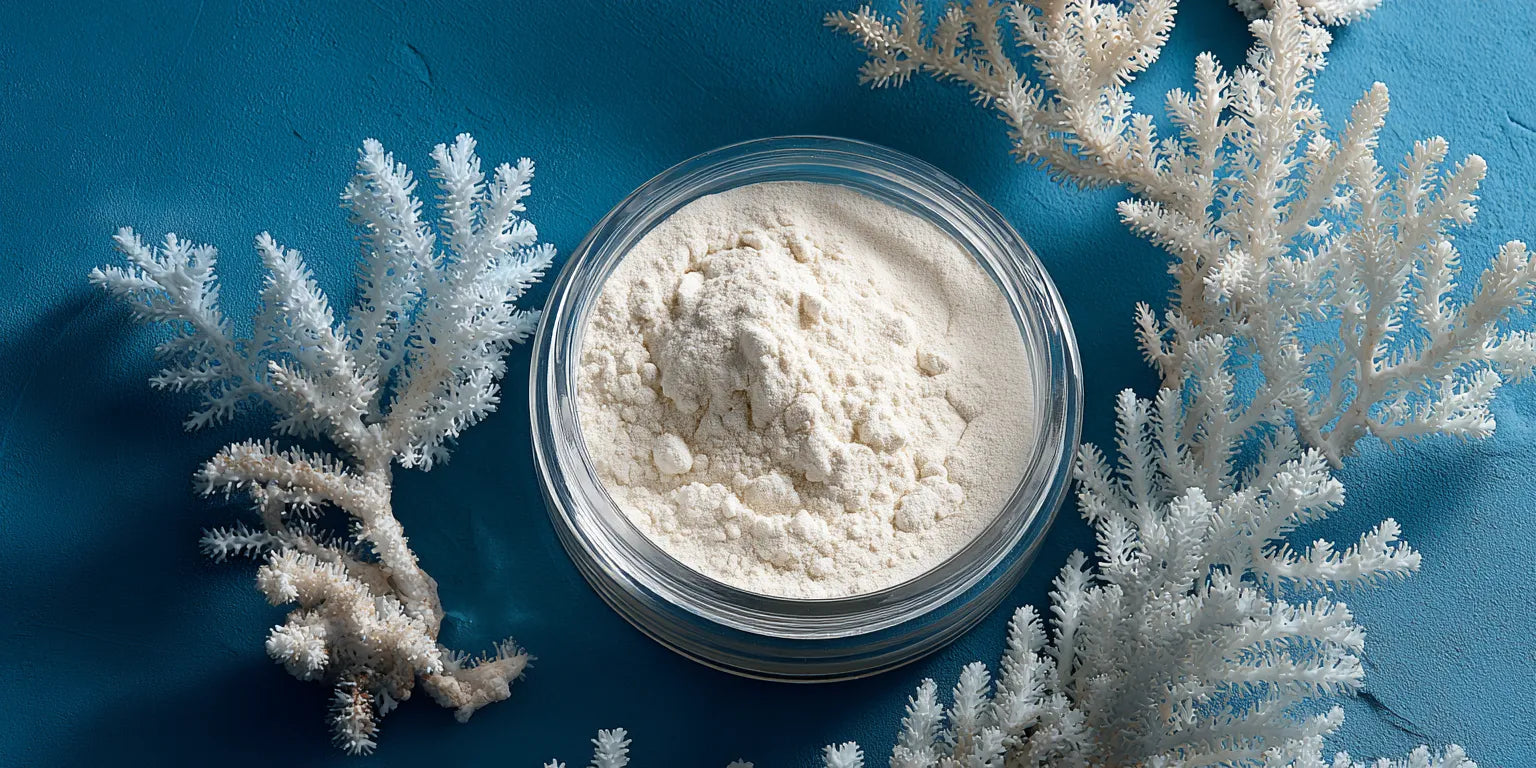Collagen and Wound Healing: Supporting Recovery from Surgery or Injury

When the body experiences trauma, whether from surgery, a sports injury, or an accident, healing becomes the top physiological priority.
While rest, hydration, and rehabilitation are vital, one critical element often flies under the radar: collagen.
As the primary structural protein in connective tissue, collagen plays a central role in wound healing, tissue regeneration, and scar formation. But does taking collagen supplements actually help? And how can you use it effectively during recovery?
In this article, we explore:
- How collagen contributes to each phase of healing
- The science behind collagen supplementation post-injury or surgery
- Best practices for safe and effective use during recovery
What Is Collagen's Role in Healing?

Collagen is the most abundant protein in the human body, found in skin, tendons, ligaments, cartilage, blood vessels, and bones. It gives tissue its structure, strength, and elasticity—making it especially important after any form of tissue damage.
There are over 20 types of collagen, but three are most relevant for healing:
- Type I – found in skin, tendons, and bones; major component in wound healing
- Type II – found in cartilage
- Type III – found in skin and blood vessels, especially important in early wound repair
Wound Healing: A Collagen-Driven Process
Wound healing happens in four key stages, and collagen is involved in all of them:
1. Hemostasis (Immediate Response)
- The body stops bleeding by clotting blood.
- Collagen exposure from damaged tissues triggers platelets to activate.
2. Inflammation (Hours to Days Post-Injury)
- White blood cells clear debris and prevent infection.
- Collagen isn't formed here yet, but inflammation triggers growth factors that stimulate fibroblasts (the cells that produce collagen).
3. Proliferation (Days to Weeks)
- Fibroblasts migrate to the wound site and synthesize new collagen (primarily Type III).
- New blood vessels form, and skin or tissue begins to regenerate.
4. Remodeling (Weeks to Months)
- Type III collagen is replaced by Type I collagen for tensile strength.
- Scar tissue forms, and the wound gradually regains structure.
Without enough collagen or the right nutrients to produce it, healing can be slower, and scars may be weaker or more pronounced.
Collagen Supplementation: Can It Help Recovery?
Emerging research and clinical experience suggest that collagen supplementation can support healing—especially when paired with key cofactors like vitamin C.
✅ Research Highlights:
- Surgical Recovery: A 2022 review in Nutrients noted that collagen peptides, especially when combined with antioxidants, may improve wound tensile strength and reduce healing time post-surgery.
- Skin Wounds: A study in Journal of Drugs in Dermatology found that oral collagen peptides improved skin elasticity and hydration, which are important for reducing scar formation.
- Tendon and Ligament Injuries: Research from the Australian Institute of Sport showed that collagen + vitamin C taken before rehab improved collagen synthesis in tendons.
Who May Benefit Most?
- Post-surgical patients (orthopedic, cosmetic, abdominal, etc.)
- Athletes recovering from soft tissue injuries (strains, sprains, tears)
- People with slow-healing wounds (e.g., due to diabetes or poor circulation)
- Older adults, whose natural collagen production is reduced
- Patients with pressure ulcers or skin injuries
When and How to Take Collagen for Healing
Dosage:
- 10–15 grams daily of hydrolyzed collagen peptides
- Ideally split into 1–2 doses
With What:
- Always take with 50–100 mg of vitamin C, which is essential for collagen production and cross-linking.
- Can be combined with zinc, copper, and amino acids like arginine or glutamine for enhanced wound healing.
Timing:
- Collagen synthesis is most active during rest and recovery—taking it in the morning and/or before rehab/physio may maximize benefits.
- For tendon or ligament healing, consume 30–60 minutes before movement or loading exercises.
Form:
- Choose unflavored, additive-free collagen peptides for best tolerability.
- Available in powders, capsules, or ready-to-drink formulas.
Complementary Nutrients for Wound Healing
To optimize collagen synthesis and overall recovery, consider these nutrients:
| Nutrient | Role in Healing | Food Sources / Supplements |
|---|---|---|
| Vitamin C | Cofactor for collagen synthesis | Citrus, bell peppers, supplements |
| Zinc | Promotes tissue regeneration | Pumpkin seeds, meat, zinc picolinate |
| Copper | Supports collagen cross-linking | Nuts, seeds, trace mineral blends |
| Protein | Provides amino acids for tissue repair | Legumes, eggs, lean meat |
| Arginine | Enhances collagen deposition | Nuts, fish, wound healing formulas |
| Glutamine | Fuels immune cells, gut healing | Bone broth, protein powders |
Potential Benefits of Collagen in Recovery
- ✅ Faster wound closure
- ✅ Stronger scar tissue and skin elasticity
- ✅ Improved joint and tendon integrity
- ✅ Reduced inflammation and swelling
- ✅ Support for bone and cartilage repair after orthopedic procedures
Cautions & Considerations
- Consult your physician before starting any supplement post-surgery, especially if you're taking medications or have conditions like kidney disease.
- Don't expect immediate results—collagen supports healing over weeks to months.
- Some people may experience bloating or mild digestive upset with collagen; try smaller doses if needed.
Collagen-Boosting Lifestyle Tips for Healing
- Hydrate well – dehydration slows tissue repair.
- Prioritize sleep – most healing occurs during deep rest.
- Manage blood sugar – elevated glucose impairs collagen formation.
- Avoid smoking and excess alcohol – both inhibit collagen synthesis.
- Limit processed foods – focus on nutrient-dense meals.
Final Thoughts
Collagen is more than a beauty buzzword—it's a foundational protein your body needs to repair, rebuild, and restore itself after trauma. Whether you're recovering from surgery, an injury, or dealing with chronic wounds, supporting your body's collagen production can enhance recovery outcomes and help restore full function faster.
While it's not a cure-all, collagen supplementation—especially when paired with a nutrient-rich diet and medical guidance—can be a powerful ally in your healing journey.

















